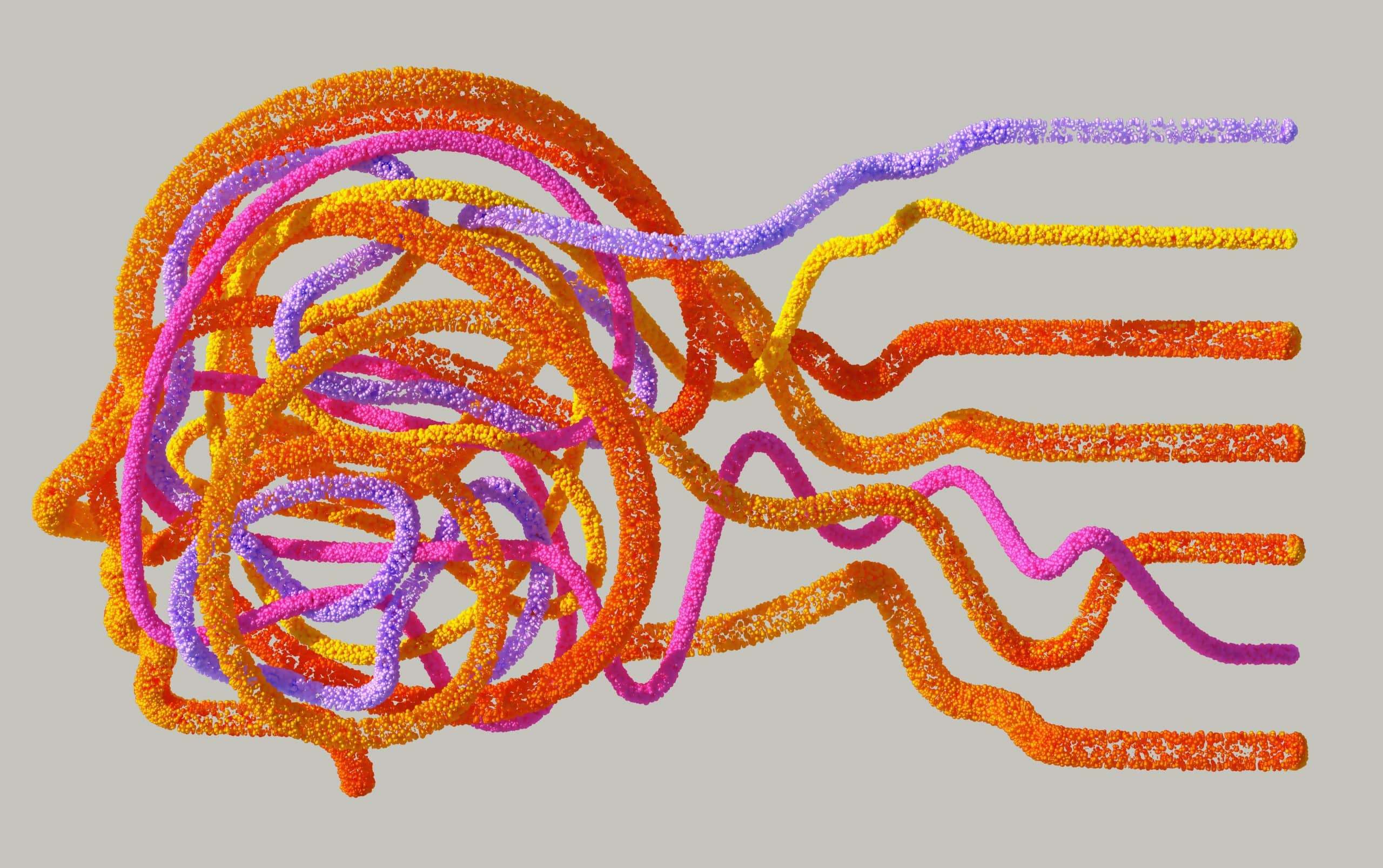When it comes to mental health, Obsessive Compulsive Disorder (OCD), in particular, is still widely unknown in psychology. Mostly, it occurs when an individual becomes stuck in a cycle of obsessive, unwanted thoughts, and compulsive, repetitive behavior. To be precise, these obsessions consist of intrusive, undesirable thoughts, images, or urges, which lead people to engage in persistent acts and cause great emotional distress to those who experience them.
Obsessions and Compulsions in OCD
Ultimately, OCD is a mental health condition that affects all people regardless of their age or background. Along with persistent thoughts, people with OCD tend to engage in repetitive mental acts and behaviors known as compulsions to alleviate their distress. However, it must be understood that simply having obsessive thoughts and engaging in compulsive behavior occasionally doesn’t mean OCD. To make a proper diagnosis, someone must show frequent and consistent OCD symptoms causing considerable distress in their daily life over time.
Individuals with OCD suffer from obsessive and recurring thoughts, images, or impulses and often want to get rid of these disturbing thoughts altogether. Although their obsessions seem irrational to everyone else, these individuals maintain some insight allowing them to recognize the illogical nature of their own thoughts. Mainly, these obsessions can cause them to struggle with intense emotions such as fear, disgust, or uncertainty. Not only that but these individuals may be consistently compelled to engage in these compulsive behaviors until everything feels right.
Levels of Obsessions
Overall, most people tend to use the terms “obsessive” and “being obsessed” interchangeably as they don’t exactly share the same meaning. However, these terms are mostly used in casual conversation to describe one’s preoccupation with either a topic, idea, or even a person or thing without the possibility of disrupting their daily life. In this casual view, people may even find enjoyment in being obsessed with something. For instance, they could be fixated on a new movie release but still manage their responsibilities and daily routine.
Yet, it’s likely for people to be influenced by more serious obsessions such as worrying about their or loved one’s health. Usually, however, these repetitive thoughts are more likely to pass without any major impact on their daily lives. Even if these obsessions resemble OCD symptoms, people without a diagnosis typically move on from these thoughts as soon as they arrive.
In contrast, people with OCD–related obsessions suffer from recurring and deeply distressing thoughts. Moreover, these obsessions are likely to cause extreme levels of anxiety, disgust, or fear to those who are impacted by them, further interfering with their ability to function normally. According to some research, individuals who have frequent and unwanted thoughts spend most of their time coping with these symptoms and nothing else.
Contamination and Violent OCD
https://gty.im/1212111284
Contamination obsessions in OCD cause intense anxiety in people about coming into contact with substances or perceiving things as dirty or harmful. These bad substances may include body fluids such as urine, feces, and other germs. Additionally, environmental contaminants like radiation or asbestos and diseases like COVID-19 or STDs can trigger a person’s contamination OCD as well. More than that, individuals with this obsession may have an additional fear of household cleaners or solvents and even common dirt, leading them to excessively clean or develop avoidant behaviors.
People with violent obsessions have intense fears of harming others or themselves even without a desire to commit a violent act. Although they’re aware of their illogical thoughts, these individuals are constantly in fear of losing control of their impulses and act violently as a result of this failure. Besides their persistent thoughts, they may become fearful of the horrific image intruding on their thoughts too.
Responsibility and Perfectionism OCD
Comparatively, responsibility obsessions in OCD center around a debilitating fear of feeling responsible for something terrible happening. Specifically, this obsession triggers someone to believe they caused a tragedy such as a burglary, fire, or even a plane crash for others or themselves. For instance, someone may trigger this OCD obsession whenever they drop something as they may become overwhelmed with thoughts of someone tripping and harming themselves.
Obsessions centered around perfectionism compel people to be preoccupied with doing things correctly or perfectly. These individuals may feel strong urges for order in their actions or surroundings, fearing that any deviation to achieve perfection will have dire consequences. Likewise, they may feel compelled to know or remember certain facts or specific details, potentially leading them to become hoarders. This way, they never have to worry about losing important information. By constantly pursuing perfection, these individuals become exhausted, with their fear of making mistakes driving them to repeat actions or tasks until they’re flawless.
Sexual OCD and Scrupulosity
With sexual obsessions in OCD, people suffer anxiety due to their intrusive, unwanted thoughts and mental images surrounding sex. These individuals may fear acting on their involuntary, inappropriate sexual impulses, which may include a reoccurring intent to harm children or their loved ones sexually.
Conversely, people who struggle with scrupulosity, moral or religious obsessions, are excessively concerned with morality or faith. They may come to fear offending God or being dammed, leading them to develop mental checks or repeat rituals to maintain their purity. When these obsessions manifest, these individuals may partake in compulsive prayer or confessions to see reassurance that their morals are still held. Even when ethical or religious dilemmas aren’t involved in certain situations, they may still fear moral failure or eternal punishment regardless as making simple decisions feels like existential dread to them.
Compulsions in OCD
https://gty.im/1271246672
In addition to obsessions, compulsions in OCD are just as challenging to deal with since they compel people to perform repetitive acts and behaviors. The reason they engage in these repetitive actions is to either neutralize or reduce the anxiety caused by their obsessive thoughts. Although they can recognize the falsehood of their compulsions, they find difficulty in resisting the behavior due to their anxiety.
Routines Vs. Compulsions
Just because an individual engages in repetitive behaviors or performs rituals doesn’t necessarily mean that they have OCD. For compulsions to be considered a symptom of one’s OCD, the context and purpose of that person’s behavior must be examined. For instance, people who partake in religious practices, bedtime routines, or practicing new skills may perform repetitive behaviors but not have OCD.
Moreover, the emotions associated with the behavior may help determine if it stems from a compulsion. Those who call themselves “compulsive” for liking details and prefer organized spaces may not have OCD but simply a personal preference. For those individuals, their compulsions may be satisfying and enjoyable, while those with OCD feel compelled to perform these repetitive actions to their own detriment. They perform these ritualistic behaviors to either reduce their anxiety or to prevent imagined negative outcomes from becoming real despite having no desire to engage in these acts.
Types of Compulsions
A common compulsion in OCD is a person’s excessive cleaning and ashing, which helps to reduce the fear of contamination, even if temporary. In general, this individual may display this compulsion by how or how much they wash their hands throughout the day. What’s more? People with this compulsion may engage in repeated tooth-brushing, showering, or other glooming routines to maintain this cleanness. Not only do they strive to keep themselves clean, but this compulsion can extend to cleaning household items or other objects too.
OCD also has checking compulsions, where individuals frequently verify that they’ve not harmed anyone or themselves. As such, they may check to ensure everything is okay or that they haven’t made any mistakes or errors. Additionally, these individuals may engage in repeated routine activities, compelling them to perform tasks numerous times until they reach a “good” or “safe” number. Lastly, mental compulsions such as praying to prevent harm and counting or checking events frequently are prevalent too. In comparison, other compulsions like organizing or arranging items until they feel right may also disrupt the lives of those who experience them.
Final Thoughts
To differentiate between OCD symptoms and regular thoughts and behaviors, understanding the concepts of “ego-dystonic” and “ego-syntonic” is important. Ego-dystonic centers around the thoughts and behaviors that conflict with one’s core values, desires, and identity, making their thoughts feel foreign or distressing.
In contrast, ego-syntonic means that a person’s thoughts and behaviors align with their core values, desires, and identity, making their thoughts feel more natural and consistent with their own views. Mainly, people with OCD experiencing obsessions and compulsions are ego-dystonic due to the anxiety they feel and the time-consuming and even harmful ways they try to relieve them.
Disclaimer: This article is intended simply to provide information. It does not replace the medical advice of a physician or other medical professional. Please speak with your doctor or therapist if you have any questions or concerns.









